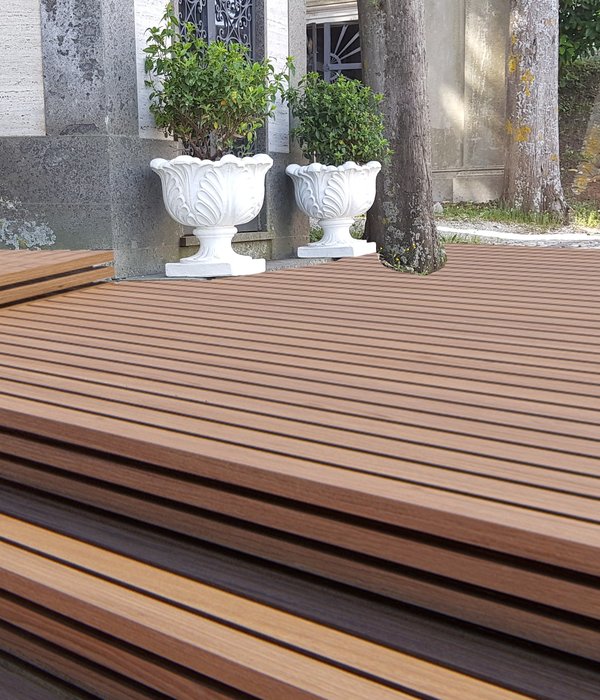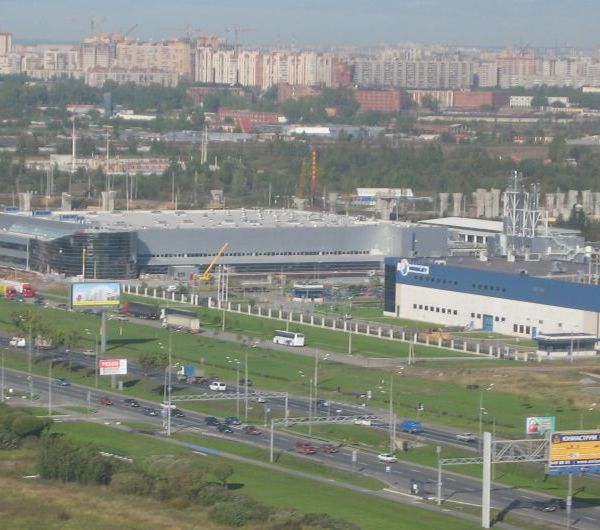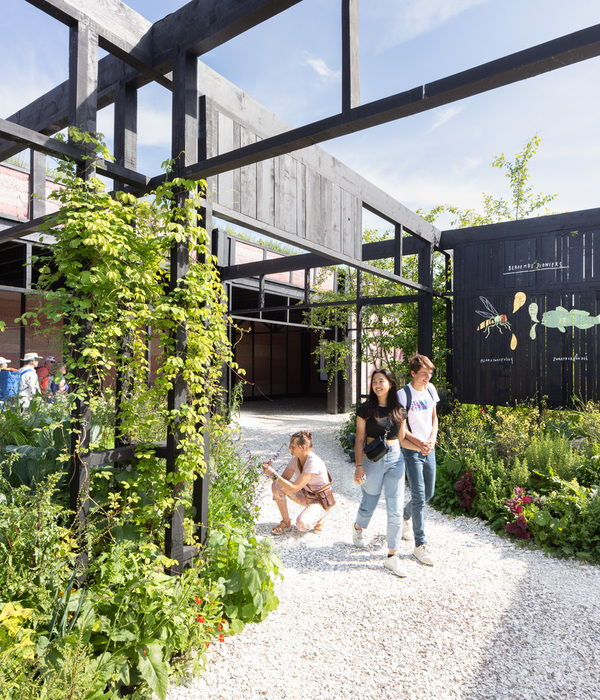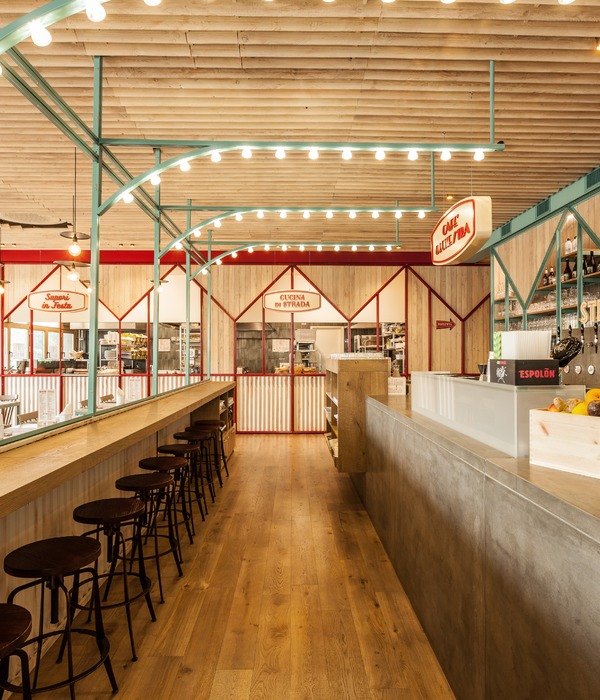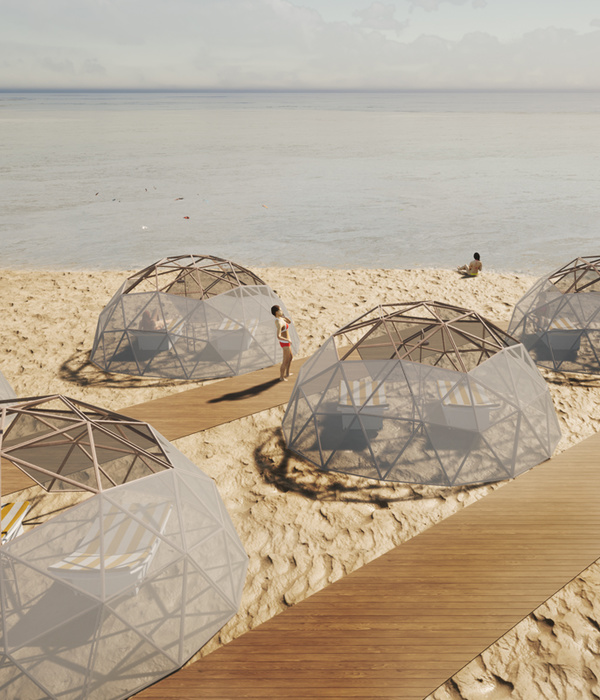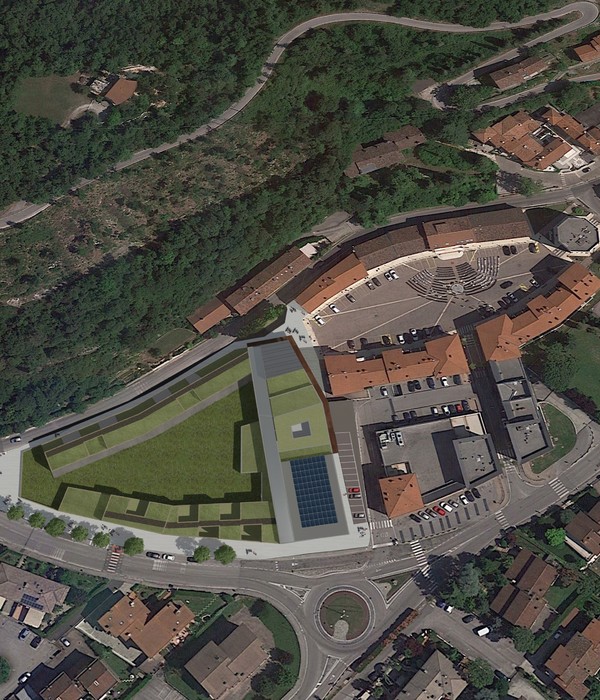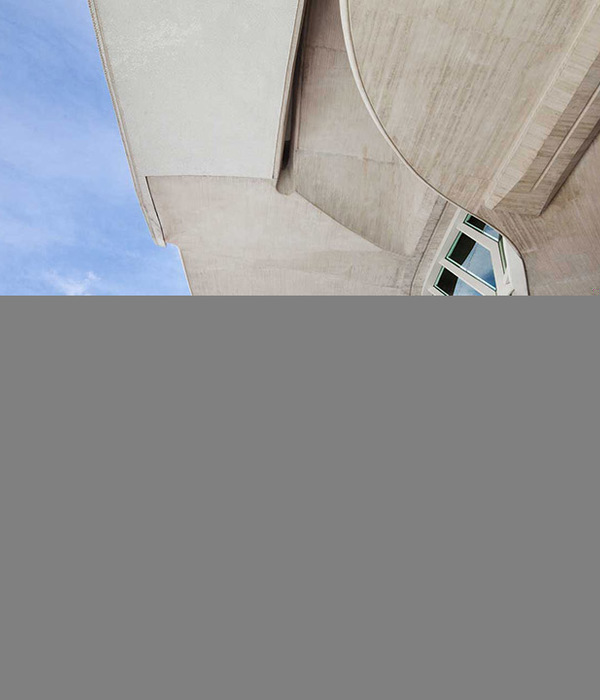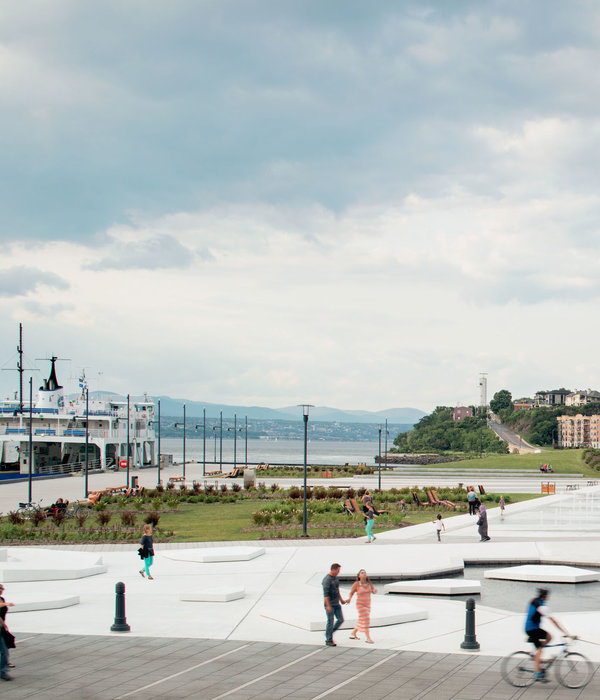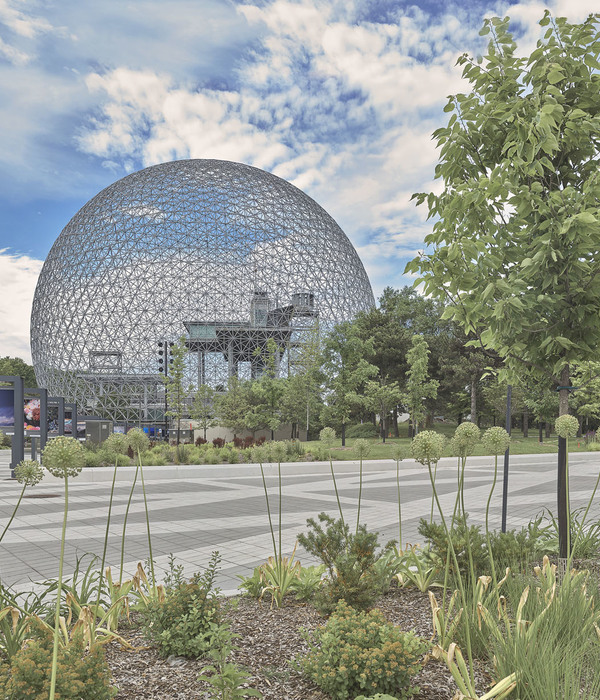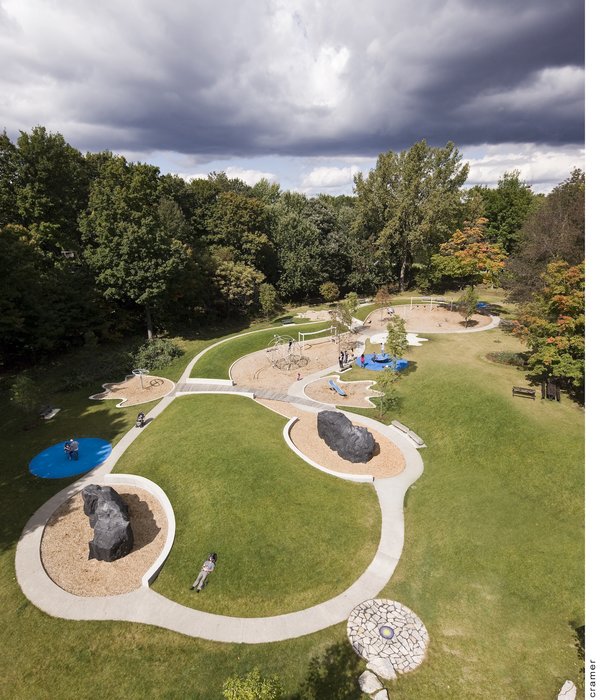© Martín Schubert
马丁·舒伯特
架构师提供的文本描述。新的Herningsholm职业学校声称自己是一个独立的建筑,在一个现有的校园群的教育建筑。这所学校是从内到外设计的,重点是创造最佳的学习和学习环境-以及外部环境-与周围环境相比,欢迎城市空间为户外工作和教学提供了可能。
Text description provided by the architects. The new Herningsholm Vocational School asserts itself as an independent building in an existing campus cluster of educational buildings. The school is designed inside-out - with a focus on the creation of optimal learning and study environments - as well as outside-in, in relation to the surrounding context where welcoming urban spaces provide possibilities for outdoor work and teaching.
© Martín Schubert
马丁·舒伯特
建筑物考虑到我们的行为和思维是由我们所处的物理环境形成的。学习环境的形式-建筑-对学生的日常学习过程有着重大影响,因此,它是按照现代和民主原则设计的。
The building takes into account that our behavior and thinking is shaped by the physical environment we are in. The form of the learning environment – the architecture – has a significant impact on the student’s daily learning processes, and is therefore designed for modern and democratic principles.
© Martín Schubert
马丁·舒伯特
这座建筑是一个角度布局,将三个建筑体积集中在一个倾斜的屋顶下,从最南的三层楼降到最北的两层楼,对周围环境做出了大规模的响应。角楼与邻近的建筑一起创造了三个新的户外城市和学习空间:广场、书房花园和前花园。
The building is an angular layout that brings together three building volumes under a sloping roof, which in scale responds to the surroundings by dropping from three floors furthest south to two floors in the far north. The angular building creates three new outdoor urban and learning spaces in conjunction with the neighboring buildings: The Plaza, the study garden and a front garden.
Ground Floor Plan
广场成为一个重要的目的地,聚集了周围的机构和用户。广场以浇筑混凝土两条大裂缝的形式将绿色植物结合在一起,将城市规模与人类尺度结合起来。在干燥的天气里,三角形的洼地提供了绿色的座位。在降雨过程中,沟槽作为自然入渗和滞留盆地来缓解下水道的污染。
The Plaza becomes an important destination that brings together the surrounding institutions and users. The Plaza incorporates greenery in the form of two large cracks in the poured concrete; merging the urban scale with the human scale. In dry weather, the triangulated depressions offer seating in the green. During rainfall, the recesses act as natural infiltration and retention basins to relieve the sewers.
© Martín Schubert
马丁·舒伯特
在西部,围绕着现存的树木,形成了一个安静的绿色花园空间,称为学习园,供学习、思考和沉思;而在南部,一个更多的半公共空间的正面花园被建立起来,直接从底层的教室进入。
To the west, around existing trees, a quiet green garden space called study garden is formed, for learning, reflection and contemplation; while to the south a more semi-public space front garden is established with direct access from the classrooms on the ground floor.
© Martín Schubert
马丁·舒伯特
一条通往广场的建筑体积的切口为学校创造了一个戏剧性的建筑成语。屋顶的悬垂形成了一个有盖的室外空间,在向北过渡到较低的建筑物的过程中起到了中介作用,并清楚地突出了学校在一楼的正门和“店面”,在那里可以看到各种教育及其工作。
An incision into the building volume towards the Plaza produces a dramatic architectural idiom for the school. The roof overhang forms a covered outdoor space, which mediates the transition to the lower buildings to the north, and clearly highlights the school's main entrance and “shop fronts” on the ground floor where the various educations and their work is made visible.
作为建筑骨干的学习空间是围绕着一个统一的公共空间组织起来的,这也是一个灵活的学习环境。学习空间分组为2和2,以便从学校的所有学习空间直接进入公共空间。
The learning spaces that are the building’s backbone are organized around a unifying common space that also serves as a flexible learning environment. The learning spaces are grouped 2 and 2 so as to create direct access to the common space from all learning spaces in the school.
© Martín Schubert
马丁·舒伯特
该建筑设计为通用,学习空间的设计,使物理环境支持和匹配多样,灵活和现代的学习原则。立面内建的座位/书房壁龛给空间带来了质量,并激发了替代的、更非常规的用途。流动家具可以迅速改变各种教学情境下的学习空间。普通的学习空间也提供了不同的物理环境供工作,从面向花园的双高房间(适合于车间式用途)到学生咖啡馆空间(供学生非正式聚会),致力于研究更安静、更亲密的人物的角落-而每个个体的学习空间本身就是为众多的设置和空间使用而设计的。
The building is designed for general use, and the learning spaces are designed so that the physical environment supports and matches varied, flexible and contemporary learning principles. Built-in seating / study niches in the facade brings quality to the spaces, and inspires alternative, more unconventional uses. Mobile furnishings can quickly transform the learning space for various teaching situations.The common study spaces also offers varied physical environments to work in, from the double-height rooms facing the garden, suitable for workshop-like uses, to a student café space for informal gatherings of students, to dedicated study corners of quieter and more intimate character – and each individual learning space in itself is designed for numerous setups and spatial uses.
© Martín Schubert
马丁·舒伯特
立面是按方向区分的,展示了建筑、可持续倡议和安装原则是如何完全适应并与建筑理念相结合的:釉面外观特征是集成的壁龛和深揭示,为立面建筑提供了阴影,这种建筑利用大型预制纤维水泥墙面板与Tall相结合,发挥了重力和方便的作用,青铜阳极氧化穿孔铝百叶窗,这增加了温暖和变化的组成。
The facades are differentiated by orientation, showcasing how the constructions, sustainable initiatives and installation principles are fully adapted and integrated with the architectural concept: The glazed facades feature integrated niches and deep reveals that provide shading for the facade architecture, which plays on gravity and ease using massive pre-fabricated fibre cement facade panels in combination with tall, bronze-anodized perforated aluminum shutters which add warmth and variation to the composition.
© Martín Schubert
马丁·舒伯特
Architects C.F. Møller
Location 7400 Herning, Denmark
Category Schools
Area 4700.0 m2
Project Year 2014
Photographs Martín Schubert
Manufacturers Loading...
{{item.text_origin}}

